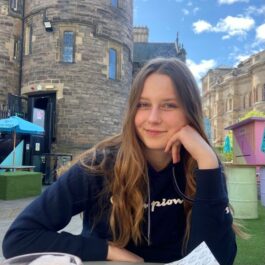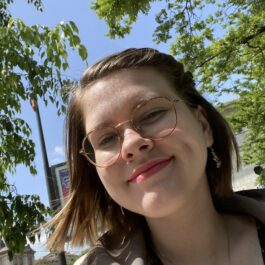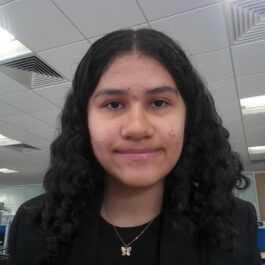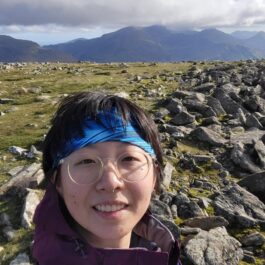Ola

Name: Ola
Sponsor: Siemens EDA
University: University of Edinburgh
Degree Course: BEng Electrical and Mechanical Engineering
What appeals to you about Electronics?
Electronics always fascinated me as a way to bind primary nature laws into such complicated creations as computers, with intelligence almost equal to the human one. Adding to it the microscale of things happening and endless choices of how to perform one task, it’s a subject to which one can easily dedicate their career entirely.
Why did you want a scholarship with Siemens EDA?
The internship programme offered by Siemens created a possibility to look more in-depth at how the systems-on-chips are operating – the topic that interested me the most as processes on these small structures aren’t visible to the naked eye. I also appreciated a lot that the team from the beginning was eager to consider my field of interest, as well as future courses of studies at the university when it came to picking a topic for my projects. This way my work was useful in real-life applications, and I had a chance to learn what I wanted and needed. That atmosphere of mutual understanding combined with the possibility of developing both my hardware and software skills made Siemens a dream company to be in.
What type work have you been involved with during your placement?
I enjoyed my time during the internship both academically and personally. During my first project, I developed a Google test to check if the value from FPGA’s hardware registers is equal to the one programmed to be calculated by our code developed earlier. The task, being a common good practice in programming, gave me experience with working on complicated code in C and C++ as well as a deeper understanding of standard FPGA architecture and different protocols that Embedded Analytics modules on the chips are using. The next project involved writing an investigation into Linux performing tools namely ‘perf’ to estimate their future viability for our department. Not only did I gather the information but also tested it on a specifically created for this purpose Fibonacci series code and described the obtained results. It allowed me to work with Virtual Machines, Linux kernel programming, machine code and tools to represent acquired data including Flame Graphs. All the time, exposed to the professional work environment and supportive atmosphere, I began to grasp what it means to work towards a common goal with such an amazing team!
What are your interests outside of work?
I strongly believe that with the practice of learning by doing one can learn twice as much two times faster and, following that idea, I joined the HYPED society at the beginning of the university, dedicated to developing the Hyperloop concept of transportation. I had many tasks there over the years starting with magnetic breaks, then navigation subsystem and currently organising European Hyperloop Week 2024 as an EHW Representative. This annual international event, associating hyperloop teams from around the world, gathering to present their full pods and subsystems to the jury and compete in several categories, creates a unique sense of community with hundreds of young engineers that I find incredibly thrilling to be among.
View other scholars profiles

Liza
Beko
"I went through with Beko as their project’s outcomes seemed to have the most immediate and fastest impact even for a short-time internship."

Lady
Cadence Design Systems
"I was introduced to a wide range of chip design tools, a professional working environment with experts in their field and very supportive colleagues with the goal of providing the best services to our customers."

Yuanyuan
Arm
"It's beneficial that I can work on the things which are closely related to those I have learned."